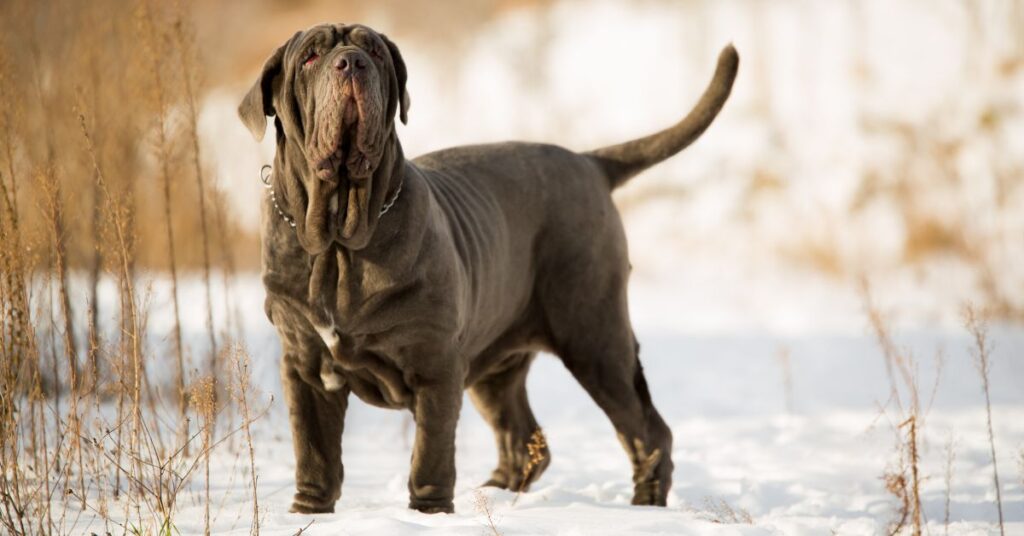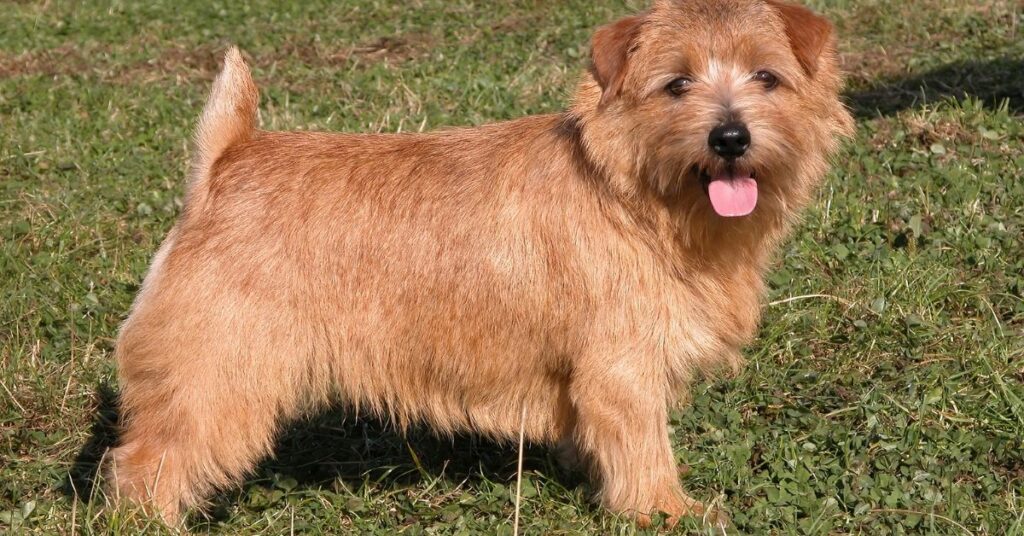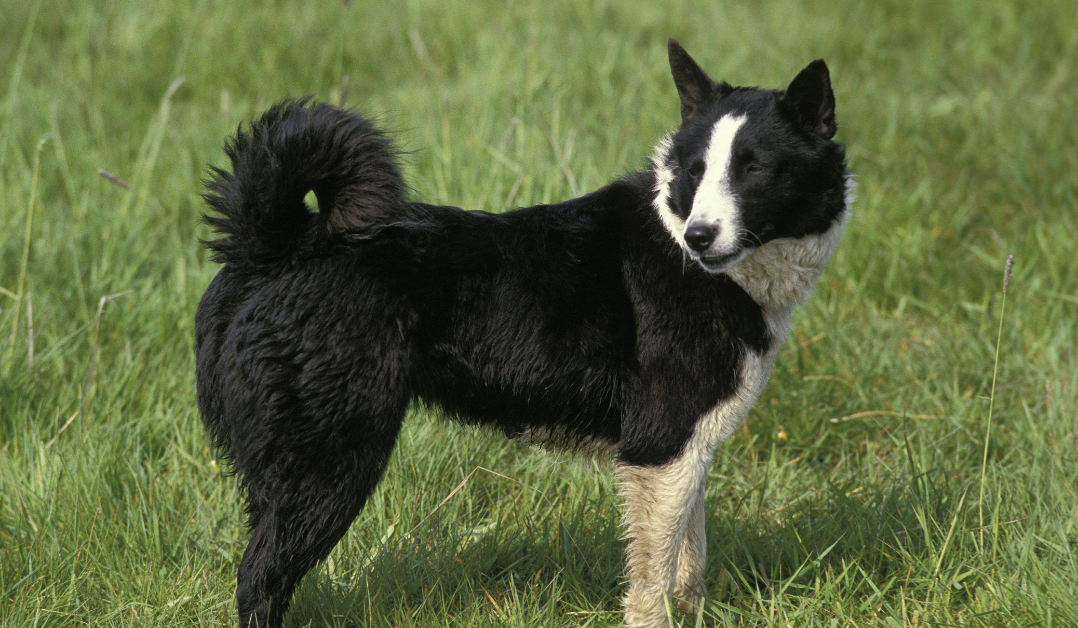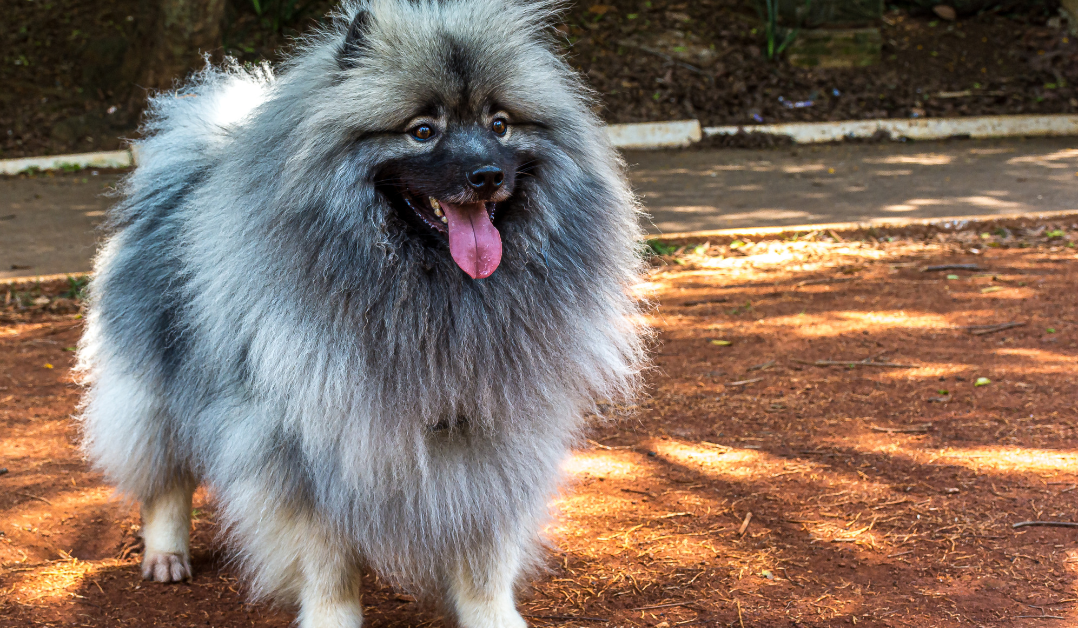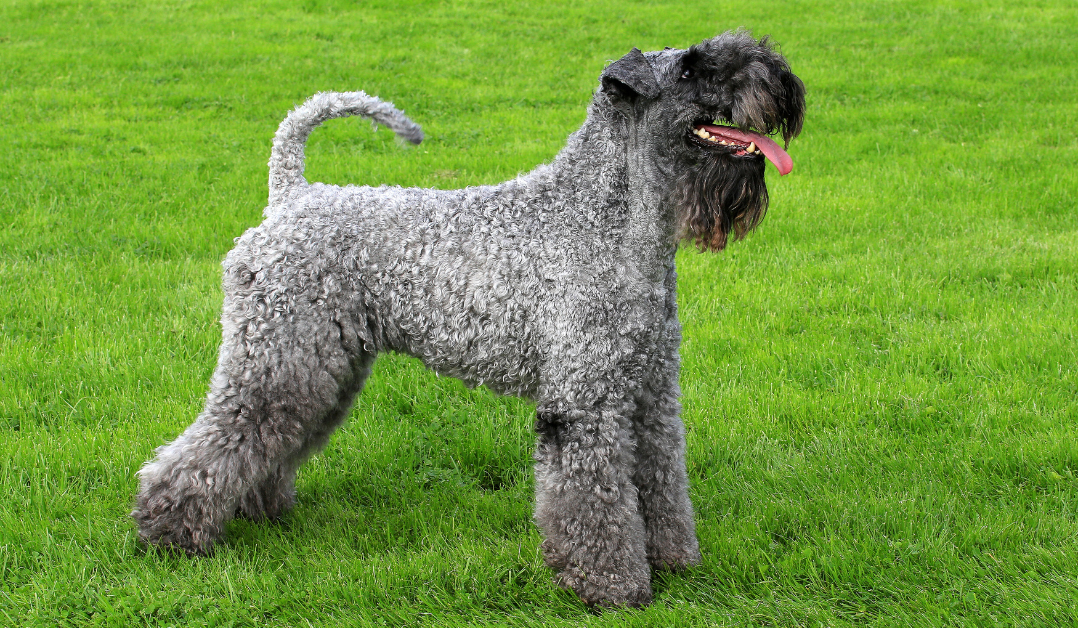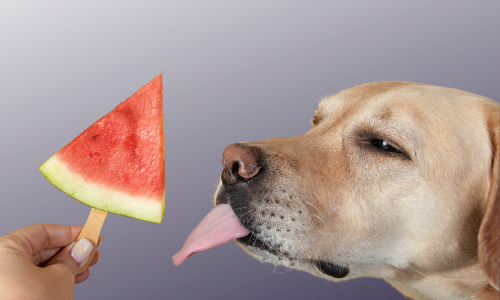The Neapolitan Mastiff is a large, imposing breed known for its protective nature and distinctive appearance. Originating from Italy, this breed is revered for its loyalty and ability to serve as a guardian and companion.
*Disclaimer: This Post May Contain Affiliate Links. This Means That I Receive A Small Commission At No Extra Cost To You Should You Click Through And Make A Purchase. Learn More On My Policy Page
Breed Characteristics
- Breed Category: Working Group
- Size: Giant
- Coat Length: Short and rough
- Shedding: Moderate
- Hypoallergenic: No
- Grooming Requirements: Low; occasional brushing needed
- Life Span: 8-10 years
- Activity Level: Low to moderate
- Temperament/Personality: Protective, loyal, gentle
- Intelligence: Moderate
- Trainability: Moderate; requires consistent training
- Space Requirement: Large; suitable for homes with yards
- Compatibility with Children & Other Pets: Good with proper socialization
- Health Issues: Prone to hip dysplasia, bloat, and certain skin conditions
- Nutrition Needs: High-quality diet with balanced nutrients
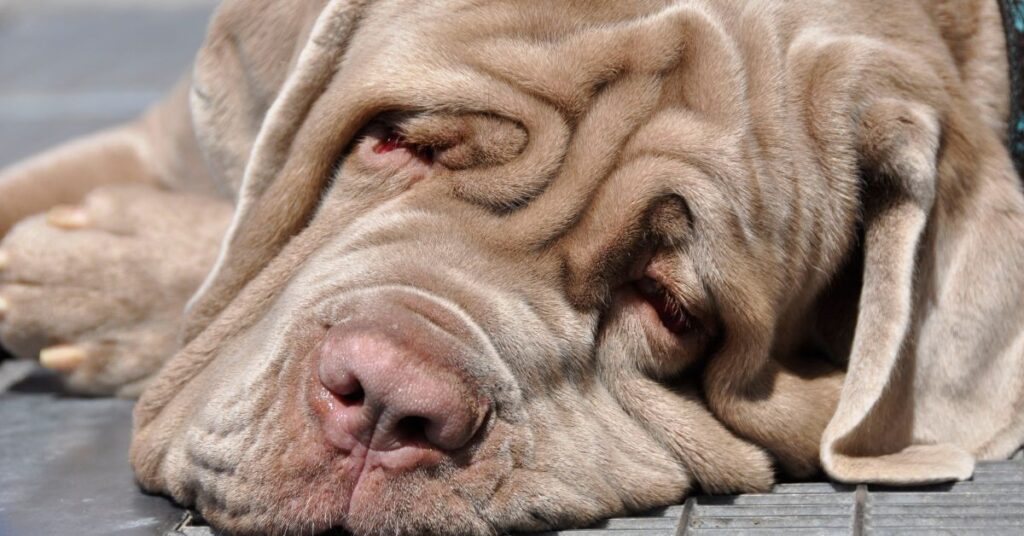
Origin and History
The Neapolitan Mastiff has ancient origins dating back to the Roman Empire. The breed was developed in Italy and was used as a guard dog and protector of homes and property. The Neapolitan Mastiff is known for its imposing size and distinctive appearance, which includes loose, wrinkled skin and a broad, muscular build. The breed has a long history of being a loyal and protective companion.
Appearance and Physical Characteristics
The Neapolitan Mastiff is a giant breed with a powerful, muscular build. Males typically weigh between 150 to 200 pounds, while females weigh between 110 to 150 pounds. The breed stands about 24 to 31 inches tall at the shoulder. The coat is short and rough, and colors can include black, blue, tawny, and mahogany. The Neapolitan Mastiff has a distinctive appearance with loose, wrinkled skin, a broad head, and a deep, powerful chest.
Temperament and Personality
Neapolitan Mastiffs are known for their protective and loyal nature. They are gentle and affectionate with their family members and make excellent guard dogs. The breed is naturally protective of its home and loved ones and can be wary of strangers. Neapolitan Mastiffs are generally good with children and other pets when properly socialized.
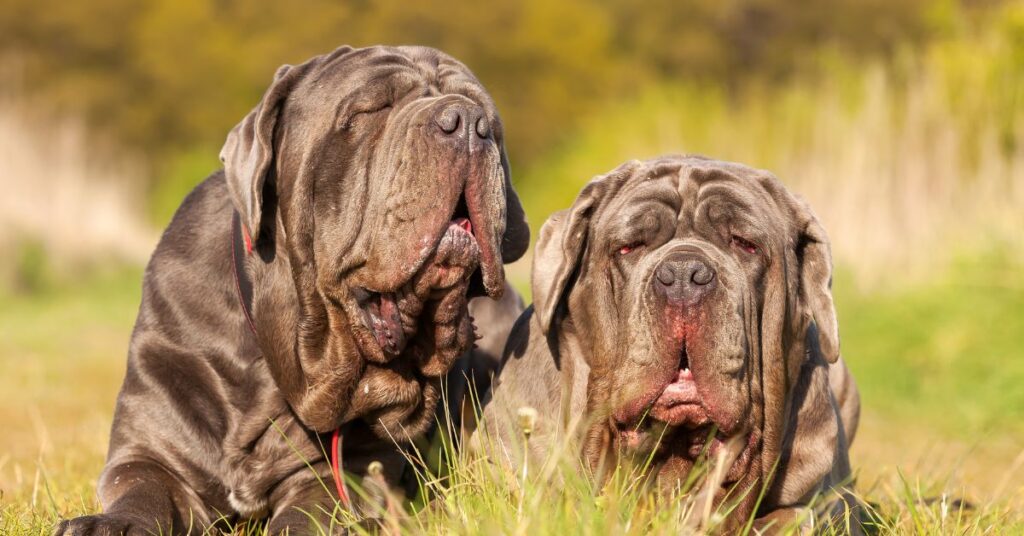
Intelligence and Trainability
Neapolitan Mastiffs are moderately intelligent and can be somewhat independent. Consistent training and socialization are important to ensure they develop good behavior and social skills. Positive reinforcement techniques work best, and the breed responds well to firm, consistent training. Early socialization is crucial to help them become well-adjusted adults.
Compatibility with Children and Other Pets
Neapolitan Mastiffs are generally good with children and other pets, especially when properly socialized from a young age. Their protective nature makes them excellent family guardians, but they need to be introduced to other animals and people gradually. The breed is generally gentle with family members but can be reserved around strangers.
Health and Nutrition
Neapolitan Mastiffs are prone to certain health issues, including hip dysplasia, bloat, and skin conditions. Regular veterinary check-ups and a balanced diet are important for their well-being. A high-quality diet with balanced nutrients is essential to support their large size and overall health. Owners should monitor their weight and provide appropriate portion sizes to prevent obesity.
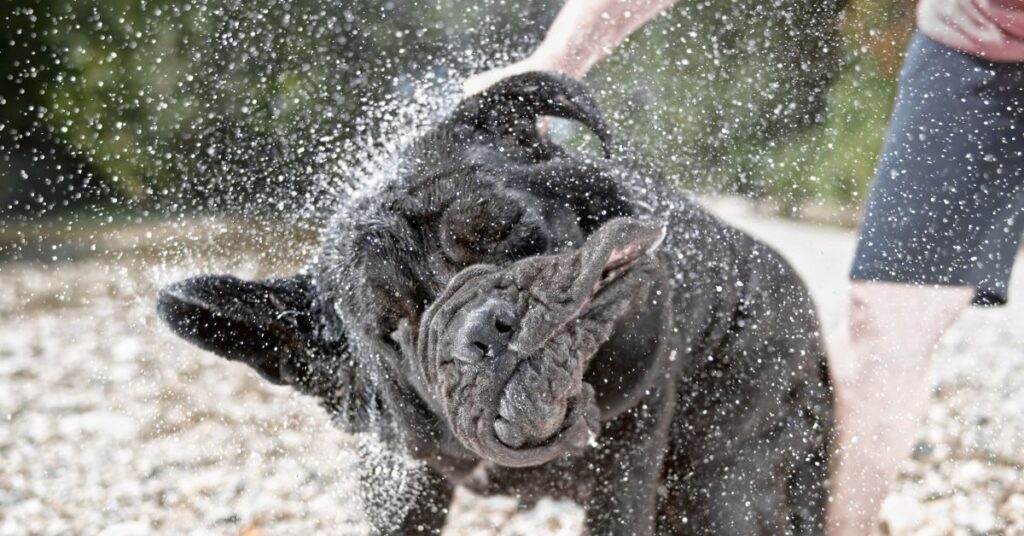
Exercise and Activity Level
Neapolitan Mastiffs have low to moderate exercise needs. They enjoy leisurely walks and moderate playtime but are not as active as some other breeds. The breed is well-suited for homes with ample space and can adapt to a more relaxed lifestyle. Regular exercise is important to maintain their health and prevent obesity.
Grooming Needs
The grooming needs of Neapolitan Mastiffs are relatively low due to their short coat. Regular brushing is necessary to remove loose hair and keep the coat healthy. Routine grooming tasks such as dental care, ear cleaning, and nail trimming are important to maintain their overall health. The breed’s loose skin may require additional attention to prevent infections and irritations.
Training and Socialization
Early training and socialization are crucial for Neapolitan Mastiffs. They benefit from consistent, positive reinforcement techniques and should be exposed to different people, environments, and experiences from a young age. Socializing them with other dogs and animals will help them develop into well-adjusted adults. The breed is sensitive and responds best to a gentle, patient approach to training.
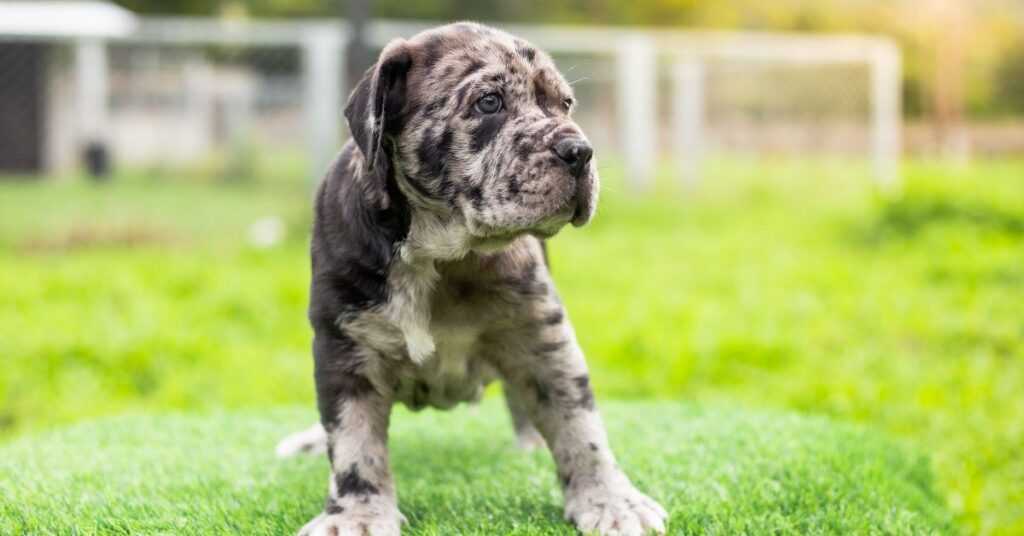
Famous Neapolitan Mastiffs
Neapolitan Mastiffs are known for their impressive size and distinctive appearance. The breed has been featured in various films and media, often depicted as powerful and protective guardians. While not as widely recognized in competitive dog shows, the Neapolitan Mastiff has a dedicated following among dog enthusiasts.
Conclusion
The Neapolitan Mastiff is a loyal, protective, and imposing breed that makes an excellent guardian and companion. With proper training, socialization, and care, a Neapolitan Mastiff can be a devoted and loving member of the family.


